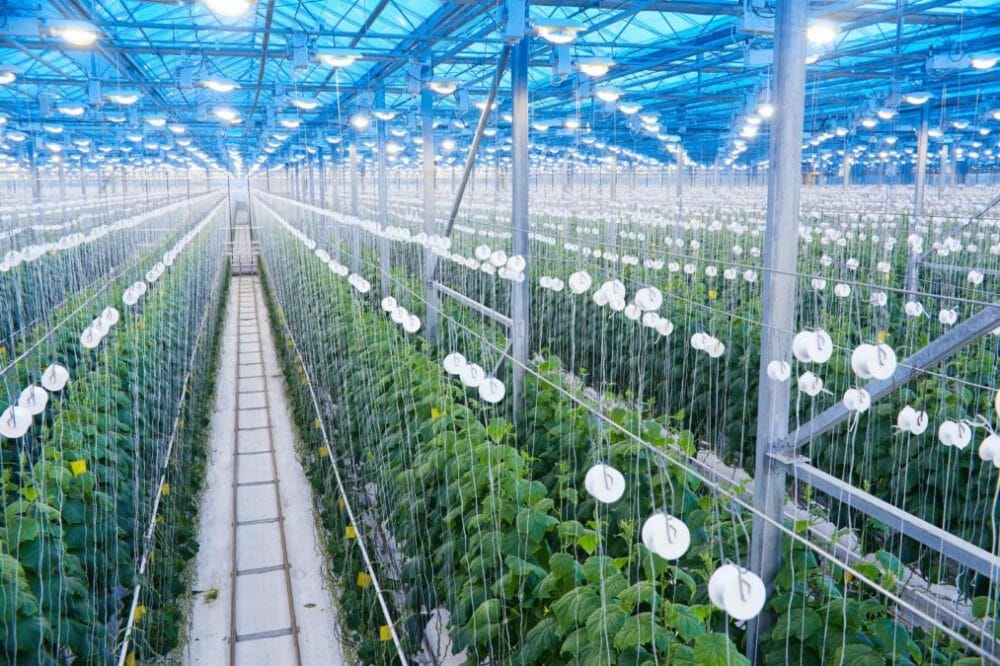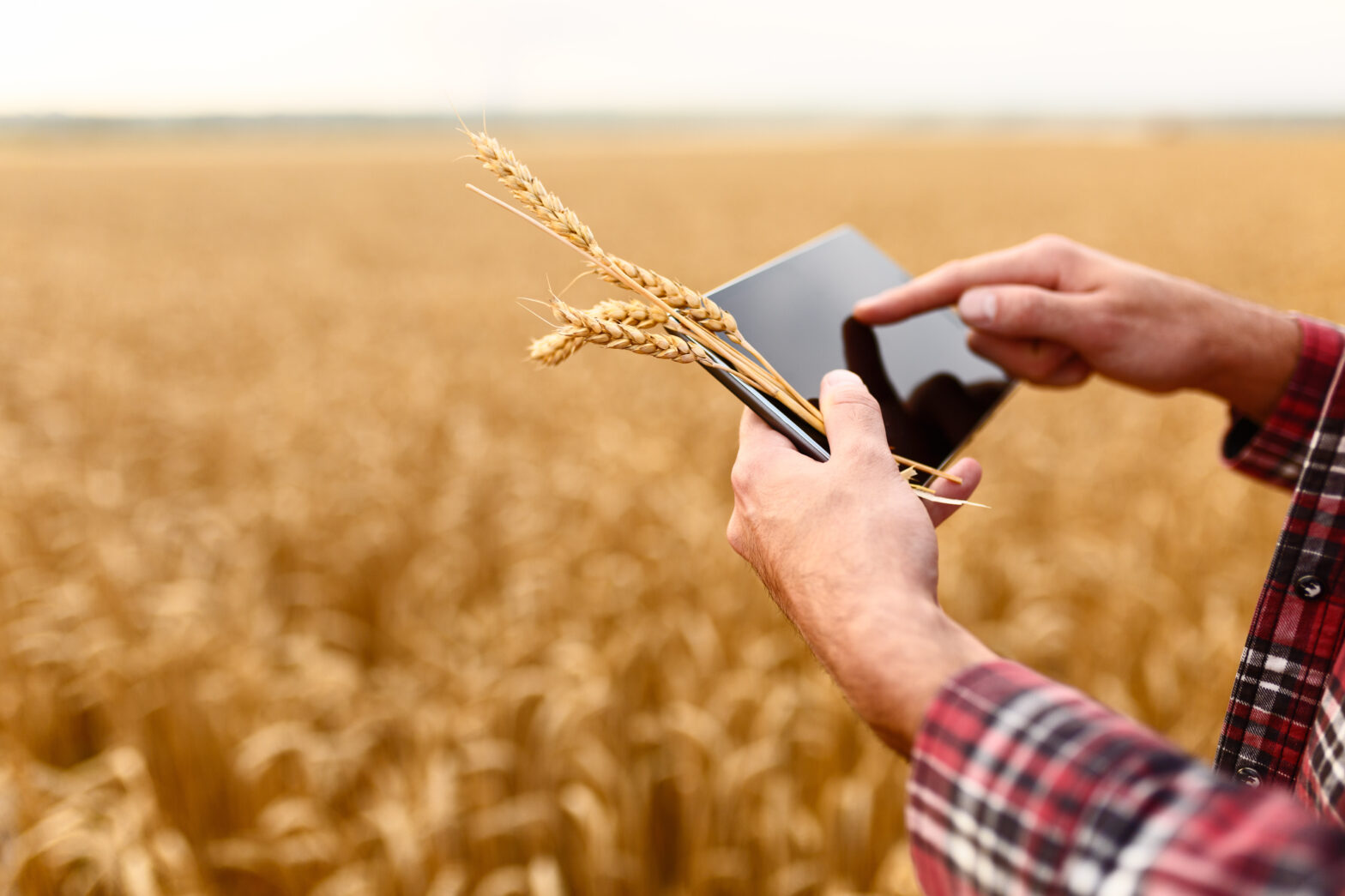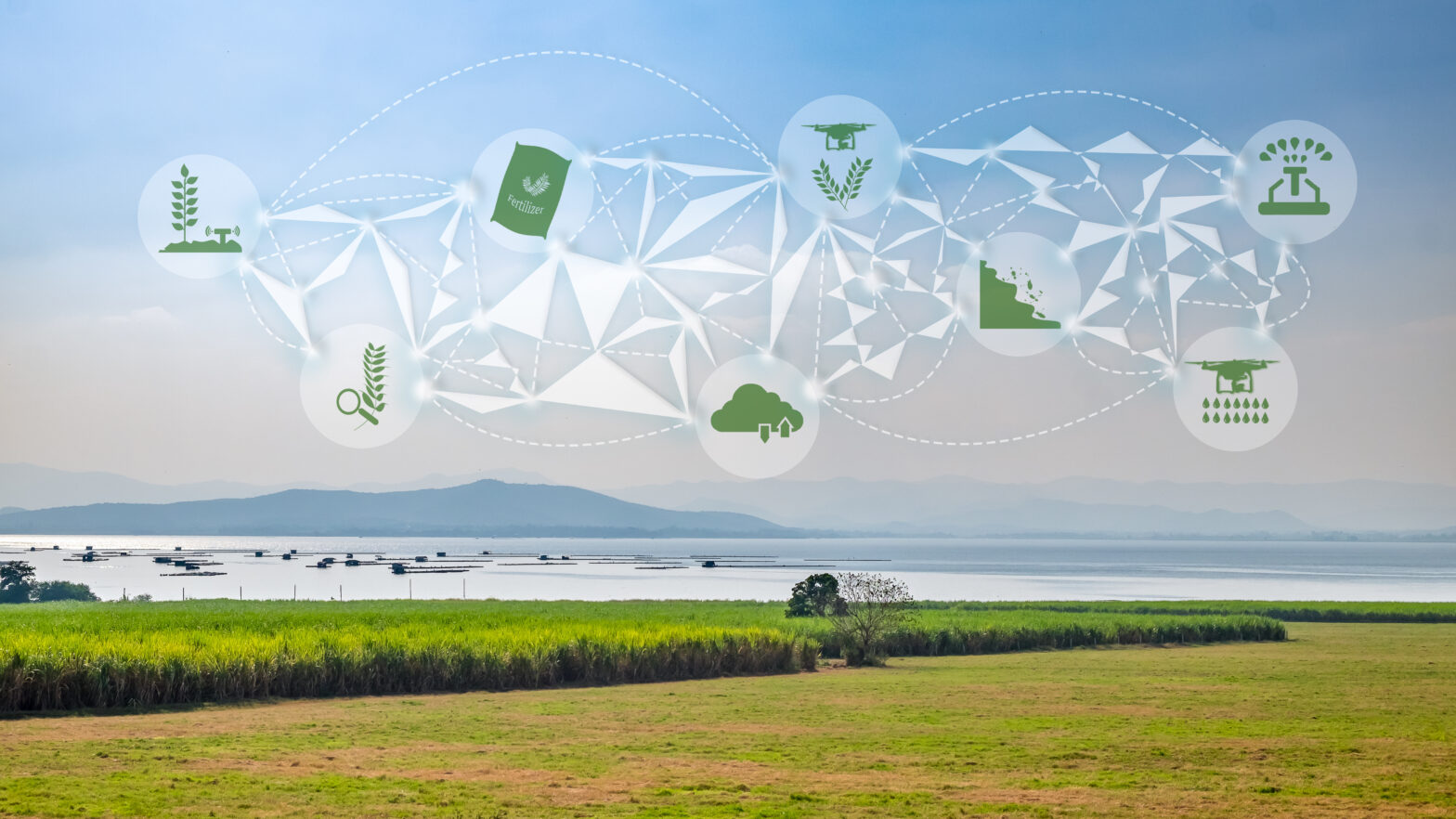The narratives of environmentalism have become so doom-laden of late that it’s sometimes difficult to approach the issue with any sense of empowerment or possibility. But there is one area of the debate that I believe we can justifiably be more positive about, and that is how digital technology is transforming farming.
Put simply, agri-tech has the very real potential to help farmers become more efficient and effective in their methods, producing food that leaves a lighter imprint on the earth and that is simultaneously more commercially viable than production today.
There are some fascinating projects currently under exploration in this area, part of the reason we recently got involved with the Life Rewired Season at London’s Barbican. We contributed a three-day pop-up Food Assembly to imagine ways we can feed the planet against the backdrop of speculative scenarios characterised by unstable social, environmental and economic factors.
As part of this, I convened a panel of experts to talk around how technology can transform current farming and food systems. The theme of data insights that can support a collaborative and sustainable farming model came through strongly, as did our panellists’ positivity about the future of farming in a data-driven world.
Use of small robots looks to be particularly transformative. From analysing soil health to aiding crop management, these devices are already making in-roads into the farm. One of our panellists was Sam Watson-Jones who runs Small Robot Company, an agri-tech start-up that’s pioneering small autonomous tractors that do less damage to the soil, enabling them to micro-target pesticides and herbicides.
Technology-driven transformation in the farming sector
We have become used to seeing enormous machines making short work of classic farming tasks like ploughing fields. But the future of agriculture is likely to also feature smaller pieces of equipment, allowing farming to become more customised to hard-to-manage crops and unforgiving landscapes – to manage an odd-shaped, sloping space for example, or only fertilise or water certain parts of a field. This promises important benefits for the environment by minimising the over-use of chemicals and waste of water. As the agricultural robots become cheaper, this will open up a whole new level of farming efficiency and potentially bring some marked improvements to soil health.
Automation also looks set to transform the role of the farmer, helping him or her become far more progressive in managing land. As Watson-Jones observed, hours spent driving a tractor up and down in straight lines can now be spent thinking about growing their business. Although there is a fixed limit to the size of a farm, there is a lot that can be done to increase crop yield. If the farmer is able to properly analyse all the data that is now available from these small robots, they are suddenly capable of producing far more.
With this level of data insights and reclaimed time, the farmer may be able to embark on regenerative farming – improving topsoil, raising biodiversity and improving the water cycle. This has the potential to hugely enhance the nutritional value of the food farmed on the land. Panellist Ali Morrow, from VC firm Astanor Ventures, had a great phrase for this process – ‘soil health to gut health’.
Tech talent vital for the survival of the UK farming industry
But there is a catch to this exciting prospect, and that is the economics of the equation. How can the farmer make enough revenue from selling these premium crops to justify the investment in the first place?
This touches on arguably the biggest issue underlying the agri-tech revolution. How can all the data that can be derived from digital farming be shared with different parties within the food system for the optimal benefit of all? As Lindsay Suddon, chief strategy officer at Proagrica said, farmers are going to become increasingly awash with data, but the real value is only in the fusion of data, and consequent analysis, in conjunction with suppliers, customers and rivals, with an emphasis on the independence of the data platforms at the heart of this.
Could it be possible, for example, to create digital platforms that link farmers, retailers and potentially the consumer in a way that erases waste and raises revenues?
Our panellists mulled over a farming future where this kind of shared platform could help establish a ‘just in time’ system that delivers crops to retailers at their peak level of freshness but also at a time that they can be quickly sold. In the same way that the robots could help reduce fertiliser overuse, a single digital platform like this could erase waste at the mid-stage of the food cycle. The question that then emerges is how a platform can be constructed so that everyone still controls their own data but which allows it to be analysed as one. Open-source software would seem to offer the best solution.
All of these developments could spell a bright and interesting future for farming, as well as the wider community it serves. This is why another of our panellists, Richard Anscombe, chief executive of farmers co-op Fram Farmers, believes that greater uptake of tech will attract a whole new generation of younger farmers, eager to play their part in the new ecosystem.

Written by John Oswald, managing director, Method






